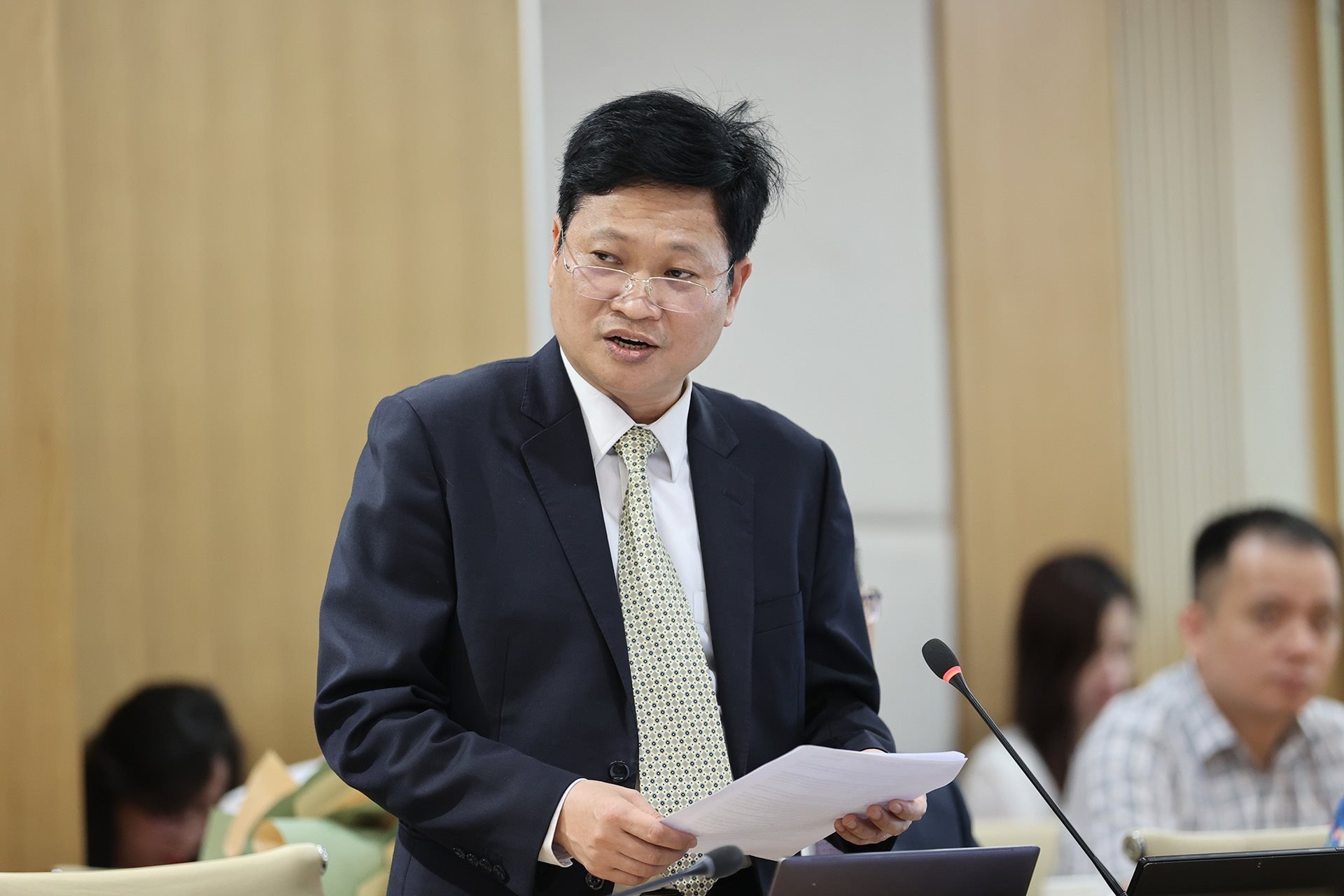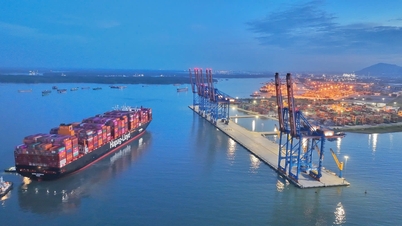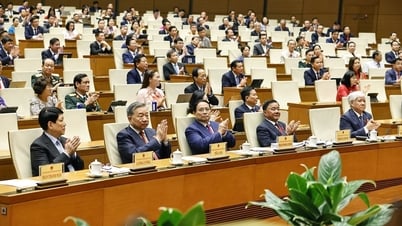
Speaking at the press conference of the Ministry of Science and Technology on June 27, Mr. Nguyen Khac Lich, Director of the Department of Information Technology Industry, said that the Law on Digital Technology Industry (CCNNS), passed by the 15th National Assembly on June 14, 2025 and effective from January 1, 2026 (some articles from July 1, 2025), is a historical milestone, marking a strategic step forward, gradually turning Vietnam into a global digital technology center.
Outstanding Values of the Digital Technology Industry Law
Mr. Nguyen Khac Lich said that the CNCNS Law comprehensively regulates the fields of digital technology industry, semiconductor industry, artificial intelligence (AI), and digital assets, creating a synchronous legal foundation for the development of key digital technology industries.
With detailed regulations on AI and digital asset management, Vietnam has become a pioneer in building a transparent legal framework on CNCNS, ensuring safety, network security and user rights.
According to Mr. Lich, in order for the digital technology industry to become a key economic driver with a growth rate 2-3 times higher than GDP, the Law provides outstanding incentives for key projects in the fields of digital technology, semiconductors, AI, and data centers. For example, projects with capital of VND6,000 billion or more enjoy a tax rate of 5% for 37 years, tax exemption for 6 years, 50% tax reduction for the next 13 years, and land rent exemption for up to 22 years and 75% reduction for the remaining years.
Enterprises receive financial support from the budget, development investment funds, and are allowed to calculate R&D costs up to 200% of actual costs to calculate corporate income tax.
Concentrated digital technology zones and innovative startup projects enjoy similar incentives to particularly disadvantaged areas, creating a strong driving force for digital technology businesses.
Promote “Make in Vietnam”
Mr. Nguyen Khac Lich said that this law clearly affirms the principle of "self-reliance and self-reliance in digital technology and strategic digital technology" as the foundation for the development of the digital technology industry, emphasizing the requirement to promote research, master technology, design, and manufacture of domestic digital technology products and services.

The law standardizes the “Make in Vietnam” program, prioritizes the use of Vietnamese digital technology products in state budget projects, and ensures a stable output market.
Startups receive funding to purchase technology, develop prototypes, and promote international trade.
FDI enterprises are encouraged to transfer technology, cooperate with Vietnamese CNS enterprises, improve production capacity and global competitiveness.
“This law focuses on developing digital technology human resources with policies to support training, provide scholarships, preferential credit for learners, and build an online teaching platform. High-quality CNCNS human resources are exempted from personal income tax for 5 years, granted 5-year visas for foreign experts, along with a competitive salary and bonus mechanism. Digital technology talents are supported with a working environment, finance for R&D, and honored, rewarded, and created conditions to attract and promote domestic and foreign talents,” said Mr. Lich.
In addition, the CNCNS Law establishes mechanisms for the State to order enterprises to research and develop key digital technologies, belonging to important national projects, projects with special requirements, and at the same time provide financial support and trade promotion to expand international markets.
Along with developing large-scale enterprises, the CNCNS Law also aims to build a strong CNCNS enterprise ecosystem with the goal of reaching 150,000 enterprises by 2035. The Law provides comprehensive support policies.
Small and medium-sized enterprises are supported with infrastructure investment costs, high-quality human resource training, and given priority to participate in bidding for public procurement projects.
The CNCNS Law encourages the development of environmentally friendly digital technology products and services, promotes reuse, recycling, and minimizes environmental impacts.
The digital technology ecosystem is built with the cooperation of large, small, and supporting enterprises. Digital infrastructure such as AI data centers and 5G networks are prioritized for investment, with the participation of both the state and private enterprises. A controlled testing mechanism (sandbox) to support innovative startups.

Mr. Nguyen Khac Lich emphasized that the CNCNS Law marks a turning point for Vietnam to rise up in the digital age, establishing a solid legal framework for the digital technology industry, semiconductors, artificial intelligence (AI) and digital assets.
With outstanding preferential policies, strategies for developing high-quality CNCNS human resources, attracting talents, building modern digital infrastructure and a synchronous ecosystem, the CNCNS Law is not only a specialized law but also a strong institutional lever to promote digital transformation and develop the digital economy.
This is a golden opportunity for Vietnam to create a competitive advantage, support digital technology enterprises to develop sustainably, integrate internationally and move towards affirming its position as a global digital technology center.
In particular, Vietnam is the pioneer and the first country in the world to issue a separate law on the digital technology industry.
Key highlights of the CNS Law
Semiconductor industry – the foundation for the future:
For the first time, the semiconductor industry has been legalized with a strategy to develop specialized chips and link the global supply chain. Semiconductor projects enjoy special incentives and support from auxiliary products, semiconductor product manufacturing to electronic equipment manufacturing. Enterprises are allowed to import used technological lines and receive R&D funding support, aiming to master the technology and raise Vietnam's position in the global semiconductor chain.
Artificial Intelligence – the driving force of innovation, new production methods:
The law establishes the first legal framework for AI, with the principle of human-centeredness, ensuring transparency, safety, and risk control. High-risk and high-impact AI systems are strictly managed in terms of technology, data, and cybersecurity. AI CNS products must have identification marks, enhance the responsibility of the subjects developing, providing, and using AI, and promote the application of AI in the economy and society.
In particular, the development of digital data in digital technology industry activities is stipulated by the Law to become an important resource and means of production and to make artificial intelligence a new production method; strongly promote the country's endogenous capacity, create new economic models with outstanding productivity and value. The State has the highest preferential policies to promote research, development, deployment and use of artificial intelligence.
Digital assets – digital economic launch pad:
The law defines the legal status of digital assets and digital asset management, including virtual assets and crypto assets, ensuring ownership, transactions, and security. With more than 1/5 of Vietnam’s population owning cryptocurrencies (according to Triple-A 2024), this legal framework meets practical needs, encourages the development of strategic blockchain digital technology, and protects users from risks, contributing to the construction of a transparent digital economic ecosystem.
Digital technology infrastructure and market:
The law prioritizes investment in essential digital infrastructure such as AI data centers, concentrated digital technology parks, and national laboratories. Enterprises are supported to develop domestic and foreign markets through information provision, supply-demand connection, and promotion of “Make in Vietnam” products. Key digital technology bidding packages are prioritized for direct bidding and ordering, creating opportunities for Vietnamese digital technology enterprises.
Source: https://vietnamnet.vn/xay-khung-phap-ly-dua-viet-nam-tro-thanh-trung-tam-cong-nghe-so-toan-cau-2415780.html






































































































Comment (0)